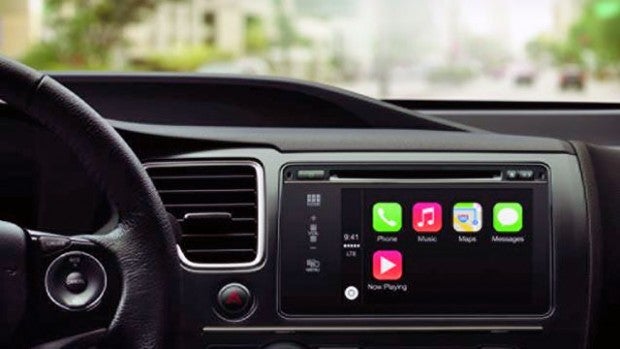Apple patents iPhone car unlocking mechanism

Apple unveiled CarPlay earlier this year, but now it’s patented a system that lets you unlock your jam jar without even taking your iPhone out of your pocket.
A patent application, spotted by Apple Insider, lets you unlock the door just by approaching it.
In the patent, Apple describes the tech as “accessory control with geo-fencing”. Basically, it surrounds the car with a virtual boundary known as a geofence. Once you enter the area, you can control the car from your handset. In this case, without even touching your phone.
It would mean you’ll never forget to lock your car, as long as your phone still has battery, that is.
These geofences can be incredibly localised too. Walk to the back of the car, and it’ll open the boot, for example.
Other uses include activating the defroster on the windscreen.
Apple isn’t the first to let you unlock your car using your smartphone. Zipcar already lets you, and there are plenty of geofencing apps around which trigger notifications based on your location. These sunglasses, for example, use Apple’s iBeacon tech to give you a digital nudge when you’ve left them behind.
But this is the first case we’ve seen of the car unlocking purely because you’re near.
It’s just a patent for now, so might never see the light of day.
Apple CarPlay hit the UK recently in the form of a retro-fitted Pioneer device.
Read more: Apple CarPlay: 8 things you can do with Apple’s in-car system

